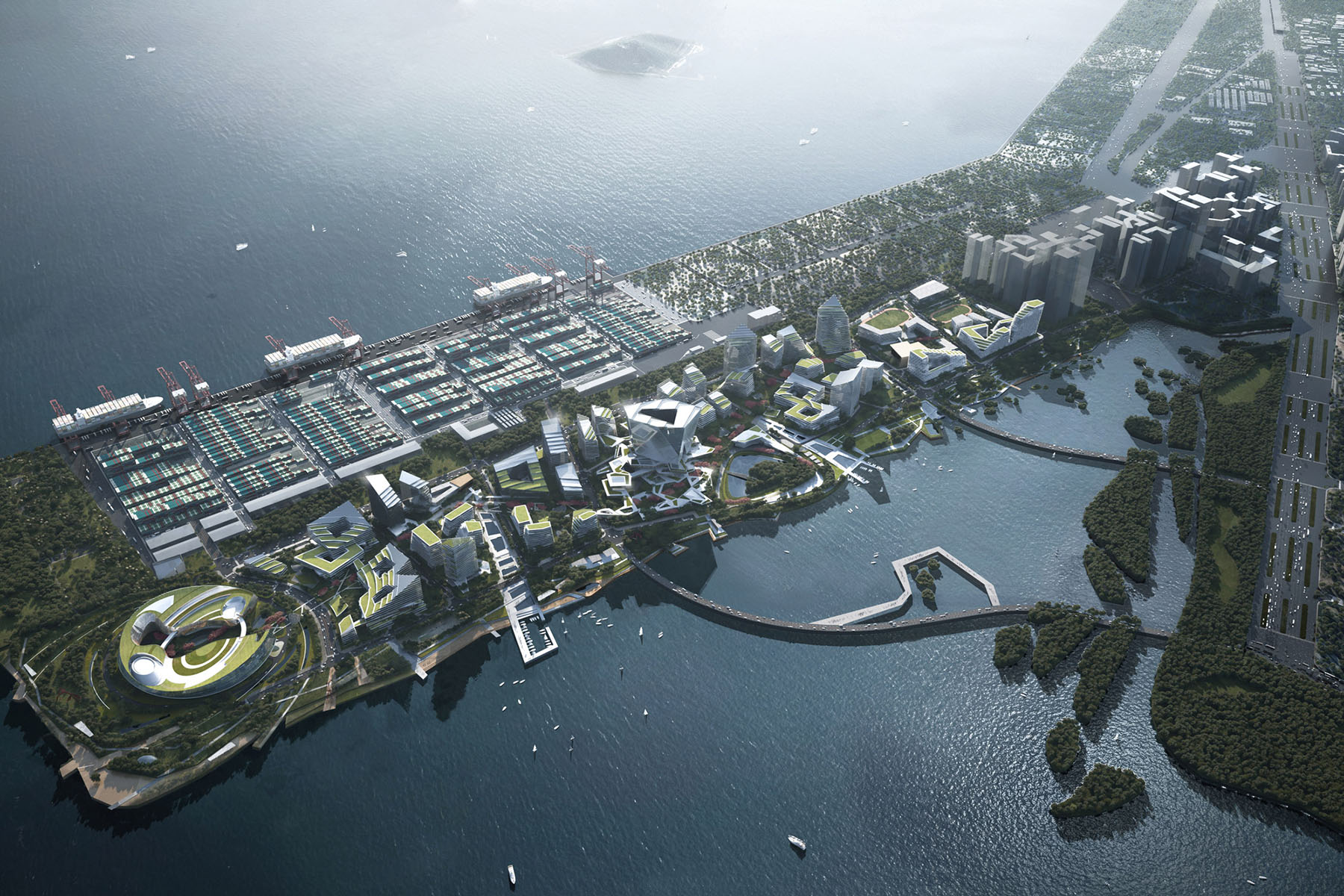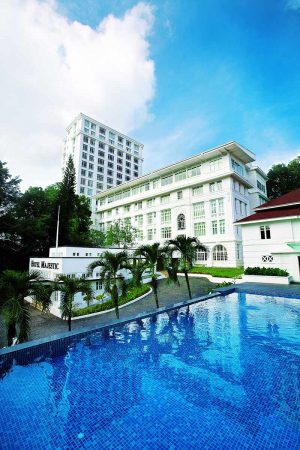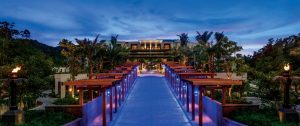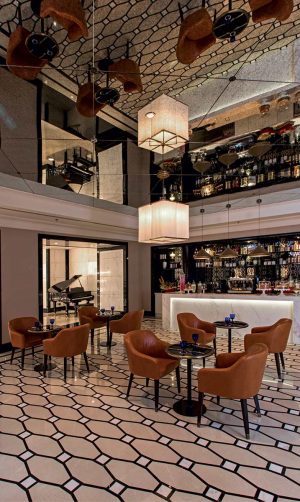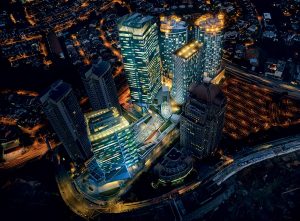Named ‘Net City’, the 2-million-square-meter project will be targeted for netizens and includes offices, homes, parks, entertainment venues and a waterfront.
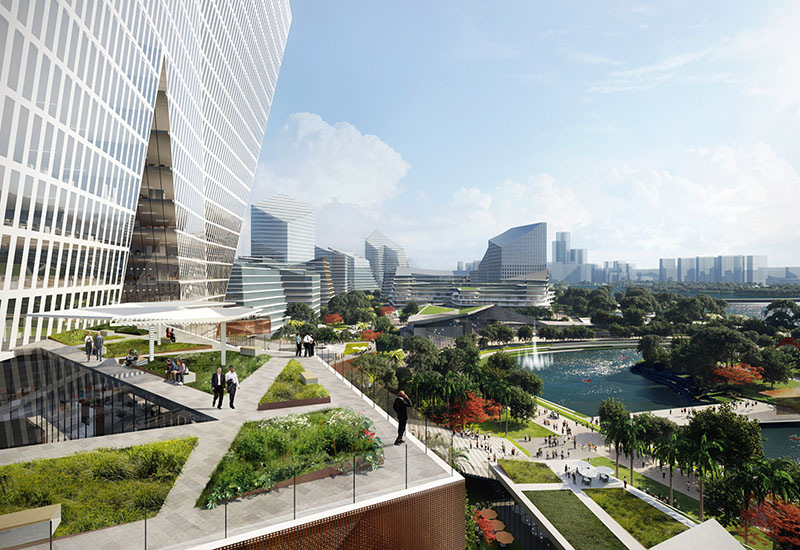
In 2012, China had but 12 “eco-cities”. By 2017, the country announced that it is developing another 285. The signs show that eco-cities are on the rise in this rapidly developing country in a bid to reduce and stabilise the impact of its heavy industrialisation and development.
The latest to join this environmentally-conscious trend is technology giant Tencent, which owns messaging platforms WeChat and QQ, as well as popular video games such as PUBG, among its best-known subsidiaries.
Unveiled by American architect firm NBBJ, Tencent’s eco-city is set to be a virtually car-free district built on reclaimed land in Shenzhen that’s “roughly the size and shape of Midtown Manhattan”. Named ‘Net City’, the 2-million-square-meter project will be targeted for netizens and includes offices, homes, parks, entertainment venues and a waterfront.
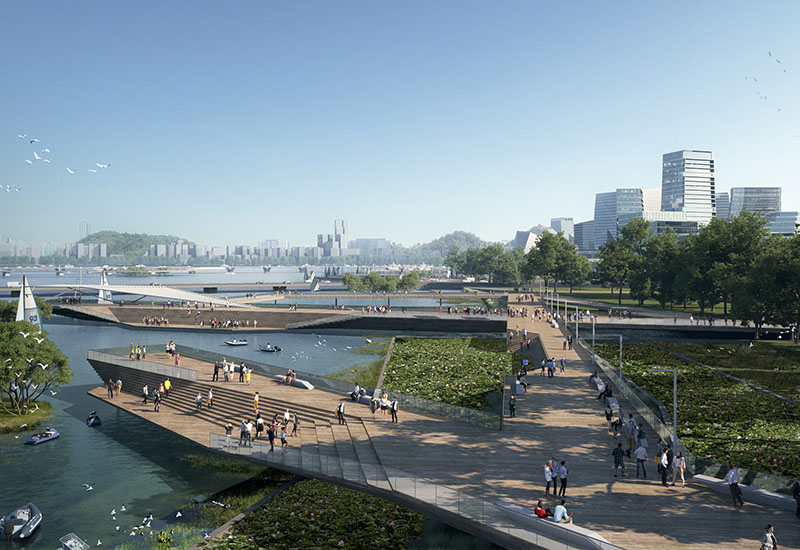 According to the design plans, the urban development will prioritise pedestrians, green spaces, and self-driving vehicles. Residents, commuters and visitors will have to connect to Shenzhen via subway and get around Net City largely by foot, bicycles or ferries. Cars will still be able to access some parts of the city, though the plan is centered around a green corridor that eliminates “unnecessary” traffic.
According to the design plans, the urban development will prioritise pedestrians, green spaces, and self-driving vehicles. Residents, commuters and visitors will have to connect to Shenzhen via subway and get around Net City largely by foot, bicycles or ferries. Cars will still be able to access some parts of the city, though the plan is centered around a green corridor that eliminates “unnecessary” traffic.
“You don’t need one block surrounded by roads – you can maybe have eight blocks surrounded by a road, and take away all the ones in between,” Jonathan Ward, a design partner at NBBJ told CNN.
“We’ve been ‘subtracting’ roads in places where we think it’s perfectly fine for people to walk two minutes longer from a subway or a (taxi) drop-off. And, in those two minutes, you might see something inspiring, connect to nature or meet a colleague you haven’t seen for a while,” he explained.
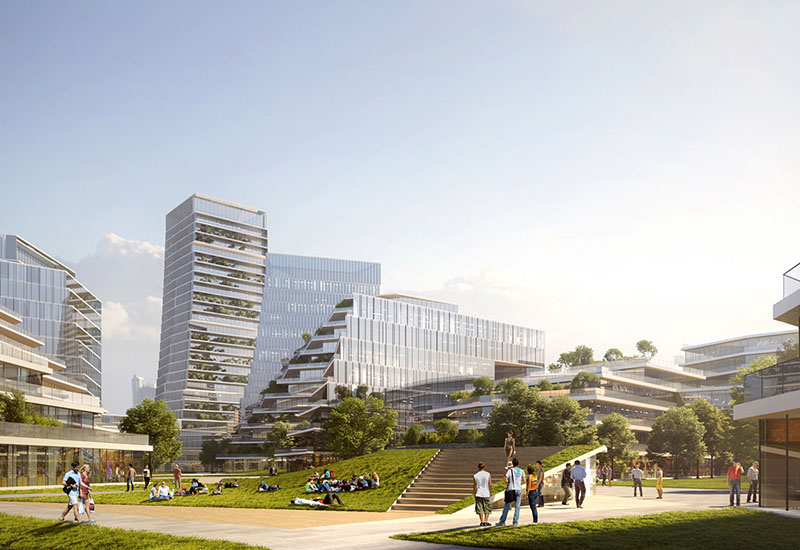 The masterplan incorporates rooftop solar panels for sustainable energy, as well as mangrove trees and advanced water management systems for flood defence as part of China’s Sponge City initiative. Terraced buildings will be built up to 30 floors in height and face towards the coast.
The masterplan incorporates rooftop solar panels for sustainable energy, as well as mangrove trees and advanced water management systems for flood defence as part of China’s Sponge City initiative. Terraced buildings will be built up to 30 floors in height and face towards the coast.
Net City will take three phases over the course of seven years to complete, with construction scheduled for later this year.
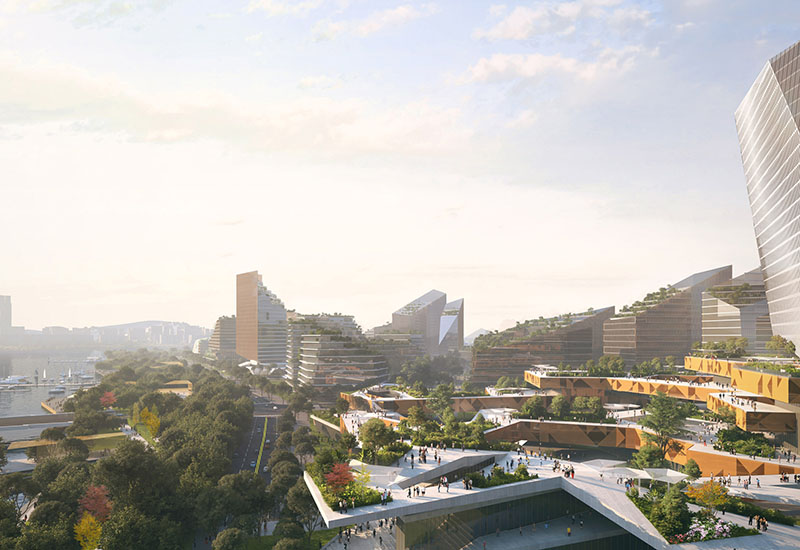
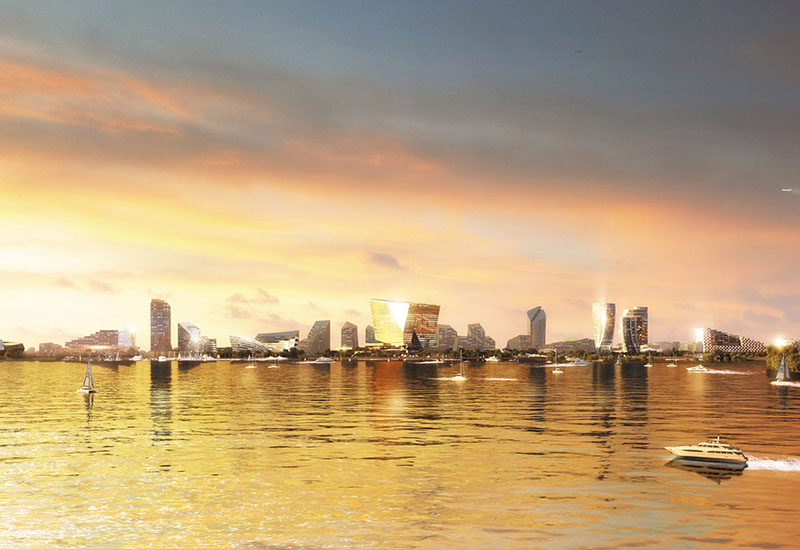
Photos: NBBJ


